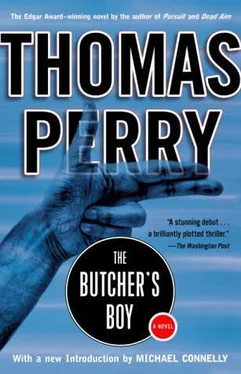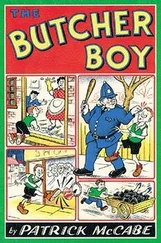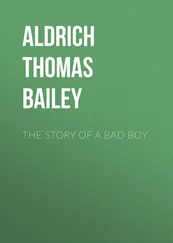“All right, I guess,” said the Senator. “On television they don’t get the chance to spell your name wrong, anyway.”
“Big day tomorrow,” said Carlson tactfully.
“Right,” said the old man. He set down his glass and raised himself slowly from his chair. “Call me at eight and while we’re having breakfast we’ll try to figure out what’s got to be done. That is, if we’ve got time for breakfast?”
“Yes sir,” said Carlson. “First appointment isn’t until ten.”
“Fine, see you in the morning then.”
“Good night, Senator,” said Carlson, already halfway out the door. “My room is right next door if you need anything. Four oh eight.” The door shut.
Claremont shuffled over to the closet and brought out his pajamas. He tossed them on the bed and then took off his suit, carefully hanging it up so it wouldn’t get wrinkled. If he didn’t hate the idea of losing his privacy, he’d get a valet, he thought. Living out of a suitcase half of each year was bad enough. Then you had to decide whether to spend your time worrying about wrinkles or give up the few minutes of solitude you ever had.
He eased himself into the strange bed and tried out a couple of positions for comfort. Politics wasn’t so bad for the young fellows, he thought. Trouble was, by the time you knew anything and had enough seniority to make anybody listen to it, you were too old. He peered through the darkness at his teeth soaking in the glass on the nightstand. Those things were older than some of the men in the House of Representatives. He chuckled to himself. Still plenty of bite to them, though.
HE FELT THE WATER around him loosening the taut muscles and soaking some of the hurt out of him. He began to feel stronger. Now and then he would take a deep breath and lean back with his chin tucked into his chest to submerge his whole head. Then he would wait until his breath came back and do it again for as long as he could. Finally he sat up, took the soap between his hands, worked it into a lather, then rubbed soap over his head and face. It was as though dozens of hornets were stinging his scalp, his cheek, his temple. He gasped to fill his lungs again and ducked under. Slowly the pain went away.
He waited a few seconds, then climbed out of the tub and began toweling himself off, gingerly. When he came to his knee he dried around it. No telling what germs there were on a hotel towel, and no sense leaving blood stains. He looked in the mirror again. This time the face didn’t seem quite so bad, with the hair combed and no clot of blood on it. It was the cheek and the eye that’d give trouble, but with the right pair of sun glasses, maybe not so much, at least until tomorrow night.
He knew what he had to do now. There just wasn’t any other way. As he dried himself he walked out into the bedroom. He picked up his watch from the dresser and put it on. Eleven thirty-nine. It would be a long night, no matter what. If only this had happened when he was working on something normal. He could call them and ask them to send somebody else, or even farm it out himself to someone he knew—Eddie Mastrewski had done that with him a couple of times. That reminded him of something Eddie had said, and it brought back the nervous anxiety: “Never work when you’re hurt, kid. If you don’t feel good you won’t think straight, either. And if people can see it they’ll remember it. I don’t mean major surgery either. I wouldn’t work with a pimple.” Eddie was full of reasons not to work.
He put on clean clothes and carefully combed his wet hair. There was one consolation, he thought. If anybody saw him and he did get away, what they’d remember about him was the bumps and bruises, and they’d be gone in two weeks with any luck.
The whole thing would have to be changed now. He had planned to get a high-powered rifle with a scope, and get him through a window in his hotel. That was the way the crazies whose fantasies didn’t include getting their pictures in the newspapers all did it. There wasn’t time for that now, and he didn’t have a gun, and—no use even thinking about it. He’d just have to live with the situation as it was.
He went to his suitcase and rummaged around for a few seconds, collecting some things. A pocket knife, a ballpoint pen, a clean handkerchief, a pair of sunglasses. He tried on the sunglasses and studied his reflection. It wasn’t great, but it was something. He made a mental note to get a pair with bigger lenses, maybe the wraparound kind. Then he sat down to read the newspaper.
There was an article on the front page about the Senator’s return. He studied it, but could find nothing that would tell him where the old man was staying tonight. He flipped through the paper until he came to a second article. This one had pictures of the old man and his aide getting out of a limousine in front of a building. Only part of the facade was visible, but it was a hotel, all right. They had said the old man had never lived in Denver. He had started out as a state assemblyman in Pueblo and still owned a place there. He studied the picture for clues. There was a doorman wearing one of those ridiculous comic-opera costumes, but no insignia on it, and nothing on the marble facade of the building except a number. He smiled. That would do it. 1905.
He picked up the telephone book and leafed through it until he came to a page marked Hospitals-Hotels . There were dozens, but it didn’t take him long. The Constellation Hotel. 1905 19th Street. He went through the rest of the list to see if there was another one with a 1905 number—he had been the victim of enough coincidences for one day—but there wasn’t. So that was it. He studied the section carefully, looking for the hotel’s ad. There wasn’t any. So he turned to Restaurants . In a few seconds he’d found what he needed.
He got up and packed his suitcase, then tore his bed up a little. He set the key on the dresser, and looked around one last time to see if he’d left anything before he turned out the lights. He walked down the back stairs and through the alley. The cold made his knee stiffen up a little, but he was walking better now. A few blocks down there was another motel, and a telephone booth at the gas station across the street.
When he came to it, he called a cab company.
“I’d like a cab, please.”
“Where are you now?”
He read the sign across the street. “The Wee Hours Motel on Colfax.”
“Where do you want to go?”
“The Pirate’s Cove Restaurant on Alameda.” He’d almost said Alameda and 19th. Never work tired or hurt.
“Right. He’ll be there in about five minutes.”
They always said five minutes, he thought. Now the suitcase. He couldn’t ditch it here. The police might not recognize the rock as the weapon and go around to all the trash cans looking for something else. Never overestimate the police, count on them figuring out the obvious. He decided to hold on to the suitcase for the moment. The worst thing the cabdriver could think was that he was skipping out on a motel bill in the middle of the night.
He saw the cab pull up in front of the motel across the street. The driver was staring at the office window for his fare, so he didn’t see the man with the suitcase until he was almost to the car. When he did he reached behind him, swung the back door open, and said, “Pirate’s Cove?”
“Yep, that’s me.”
The cab was fitted with an oversized heater that blew a continuous rush of hot, impure air into the back seat. After the cold outside he figured he could tolerate it for a few minutes. He sat in the driver’s blind spot.
The driver said, “Hell of a cold night, ain’t it?” as he pulled away from the curb.
“Sure is. Glad you got here so quick.”
Читать дальше












